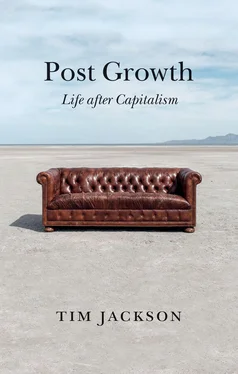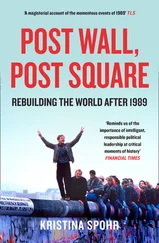A representative state; a market economy; a consumer society: this was the recipe for social progress. Governments across the world were content to follow its rubric. And yet the formula had evidently failed. So what exactly happened? How did it all go so wrong? Who killed capitalism?
Crime scene investigation
The most obvious answer to this question is: no one. Capitalism is alive and well, thank you very much, and living the high life in New York and Dubai and London. Beijing, even. And Davos, certainly. Despite their anxiety, no one at the World Economic Forum was seriously about to give up on capitalism. The introspection was an elaborate show. In fact, the principal outcome from the surprising self-flagellation was an all-too-familiar refrain: capitalism is dead; long live capitalism!
Stakeholder capitalism; capitalism with purpose; ‘woke’ capitalism, as the New York Times amusingly called it. These were to be the new incarnations of an old regime. They were paraded almost daily by those who, sometimes by their own admission, had benefited most from the old regime. (Why should we not entirely trust them? I couldn’t possibly imagine!) But beyond the sometimes distasteful rhetoric, and the unmistakable impression of power clinging on to power, lay the dawning realization that something extraordinary had happened to the foundational narrative on which social progress depends. So the question remains. Who or what was responsible? 11
For a while now, the most convenient suspect has been the global financial crisis. I’ve lost count of the number of attempts I’ve seen to compare the average growth rate before 2008 with the average growth rate in the years that followed. It’s so easy to conclude that the problems arise from the continuing ‘headwinds’ caused by the crisis. These commentaries miss the point completely. The decline was already happening decades before the crisis struck. The peak in labour productivity growth in most advanced economies was more than half a century ago.
Every now and then, a suspicion has caught hold that the problems are more deeply rooted. In November 2013, five years after the collapse of Lehman Brothers, the former World Bank chief economist and US Treasury Secretary Larry Summers gave a speech to the International Monetary Fund which sent something of a shock wave through the audience. The continuing uncertainties of the post-crisis years were not just temporary after-shocks. ‘The underlying problem may be there forever,’ he said. Low and declining growth may just be the ‘new normal’. 12
Summers was certainly not the only, or even the first, but he was certainly the most well-known economist to make such a claim. The repercussions were profound. For a while, it became acceptable to ask previously unthinkable questions. What if there just isn’t so much growth to be had anymore? What if sluggish demand is here to stay? The term ‘secular stagnation’ – first coined in the 1930s – was revived to describe a phenomenon that was becoming too obvious to miss: an increasingly visible long-term decline in growth rates, particularly in the mature economies of the West. As the futurist Martin Ford pointed out: ‘There are good reasons to believe that the economic Goldilocks period has come to an end for many developed nations.’ 13
The reputation of the economic system (and of economics itself) certainly took a pretty heavy beating during the financial crisis and has struggled to regain its mojo in the intervening decade or so since. But to attribute capitalism’s woes to that time and that time alone is certainly wrong. The cracks were already visible beneath the shiny surface long before the crisis ‘made them manifest’.
Another common suspect is the economic shift that took place in the 1980s. The economics of ‘monetarism’ heralded a radical agenda of privatization and deregulation. Today’s predominantly neoliberal, free market policies stem from that time. They had a profound impact on society. It’s since that time in particular that inequality has risen, debt has expanded, anxiety and suicide rates have multiplied, obesity and lifestyle disease have accelerated.
‘In America, the emblematic core of capitalism, half of the 1980 generation are absolutely worse off than the generation of their parents at the same age,’ reveals Collier. In the intervening decades, capitalism has ‘continued to deliver for some, but has passed others by’. 14
That’s a kind interpretation. Less kind is Noah Hawley’s black-comedy crime series Fargo . In the second season of the show, set in 1979, a local family in Fargo, North Dakota, goes head to head with the infamous Kansas City Crime Family and comes off worse in the conflict. In the final episode of the season, one of the Kansas gangsters, Mike Mulligan (played by Bokeem Woodbine), arrives at the syndicate’s headquarters expecting promotion for his part in the downfall of the Fargo family. He’s shown to his new office in an unremarkable building and told by his manager that he’ll be ‘working closely with the accounting department, looking for ways to optimize revenue.’ Mike is mystified. ‘This is the future,’ his manager explains. ‘The sooner you realize there’s only one business left in the world – the money business, just ones and zeros – the better off you’re gonna be.’
Hawley’s message is clear, right down to the time the story took place: 1979. It was the year that Ronald Reagan announced his Presidential campaign and Margaret Thatcher came to power in the UK. Monetarism announced an era in which, as the Chicago School economist Milton Friedman infamously declared: the business of business is business. Social responsibility was irrelevant. The ethics of the city became virtually indistinguishable from those of organized crime. Charles Ferguson’s 2010 documentary Inside Job and Adam McKay’s 2015 comedy-drama The Big Short – two films about the financial crisis – make the same point. 15
It would all have appalled Adam Smith – the founding father of capitalism. But he wouldn’t have been remotely surprised. He knew only too well that self-interest left unchecked undermines the benefits of the market. He once railed deliciously against ‘an order of men whose interest is never exactly the same with that of the public, who have generally an interest to deceive and even to oppress the public, and who accordingly have, upon many occasions, both deceived and oppressed it’. The target of his attack was ‘those who live by profit’ – or in other words, capitalists themselves. 16
Only the state could counter the dangers of runaway self-interest, Smith realized. Neoliberalism’s fantastic conceit was to neglect this advice completely. Instead, it argued, capital should be freed from government to the greatest extent possible. What ensued was a philosophical abomination. It had nothing to do with the ‘freedom’ of the market and no credibility in either theory or practice. Yet over the last two decades of the twentieth century its ideas became deeply influential across the world. It is quite simply Fargonomics . Its ethics are gangster ethics, the law of the jungle. And it’s created a form of capitalism that has worked exceptionally well for the few but continues to fail for the many.
The voices in Davos reflect a rising awareness of this failure. The assailant was known to us, they seem to imply. We made a mistake in trusting him. We understand now the lesson that Smith tried to teach us. We must reverse the damaging policies of the past and make capitalism work for everyone. Profit with purpose in Benioff’s view. A strengthening of ‘reciprocal obligations’ in Collier’s book.
Читать дальше












